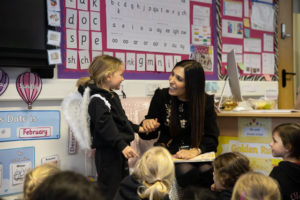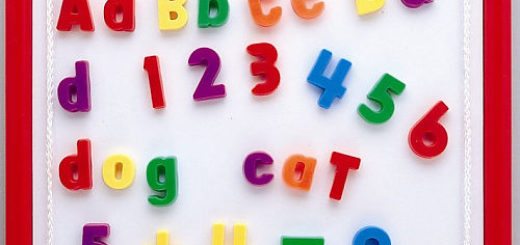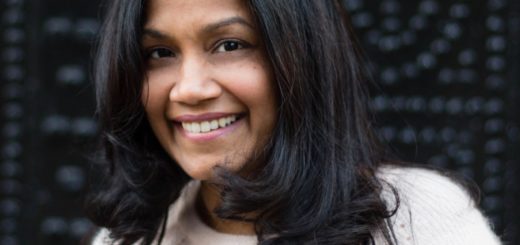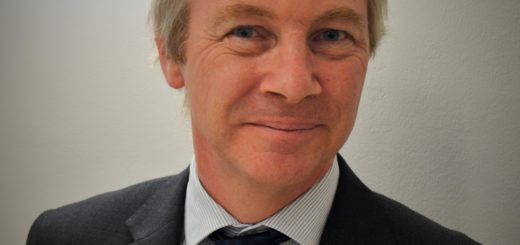Exclusive Interview with Ms Dina Hamalis, Head of Channing Junior School
Question:
Given the competitive nature of entrance assessments at 4+ what is your view on preparation? Realistically should parents tutor their children for this?
Answer:
I totally understand that parents want to do the very best for their children; however, I do not advocate tutoring, especially at such a young age and, as experienced teachers, we can spot overly prepped children. I would encourage parents to play with, talk to and read to their daughters to ignite their curiosity for the world around them and promote a love of learning. Play is crucially important and the Early Learning Goals are focussed on Communication and Language, so we are looking for girls who interact, listen and respond
with interest and enthusiasm. Children learn so much, not only factual information such as colours and names of animals but how to share and take turns. They also develop their fine and gross motor skills.
Question:
With all the schools getting more oversubscribed each year, how do you ensure that the assessments provide enough information to help you select girls who will be a right fit for the school? What is it you look for in such young children?
Answer:
We have developed a system that is perfectly suited to girls aged 3-4. They take part in a variety of games and activities led by specialist staff who are used to working with young children. It is an enjoyable experience for them whilst enabling the staff team to assess each child’s potential. We are looking for: girls who are interested and interesting; girls who can work independently, as well as collaboratively; and very importantly, girls who show respect and kindness for others. We select girls that we feel will thrive at Channing and be the best version of themselves they can be.
Question:
As a school that goes all the way through, there is a lot less pressure on parents and children alike to sit internal exams in order to progress through the school. Do you find that this means the majority of girls stay on or do you get a large percentage leaving at 7+ and 11?
Answer:
Channing is a through school from 4 – 18 and the majority of girls enjoy the educational journey from the very start to the end. The girls in the Junior School do not have to sit the 11+ entrance exam to gain a place at the Senior School as we track them through the Junior School and provide support and extension as required. This permits all girls to learn free from the pressure of 11+ exams which has great benefits, both socially and academically.
Question:
While there are benefits to being a junior school rather than a prep school, i.e. taking the focus away from preparing for competitive exams like the 11+, how do you ensure that the girls are prepared for the far more academically rigorous senior school curriculum?
Answer:
As we don’t have to prepare the girls for 11+ exams, they enjoy a very broad and balanced curriculum and extra curricular programme. Each pupil is treated as an individual; staff provide support and extension to ensure continued progress across the entire curriculum. To ensure the girls are fully prepared for the Senior School, the Head of Key Stage 2 (Y3-Y6) liaises with the Head of Year 7 to provide a comprehensive handover. Additionally, to ensure that our curriculum expectations are aligned, the Junior School Leads meet with the Heads of Department in the Senior School. This enables a smooth and seamless transition from Y6 to Y7 when the girls move onto the Senior School. Moreover, testament to the education the girls receive in the Junior School, regardless of not sitting 11+ exams, they repeatedly outperform others that join the school in Year 7 in public exams.
Question:
What are your views on single sex education in our modern era? Where do you think the practice of educating boys and girls independently will go in the future?
Answer:
In today’s society, more than ever, we need to educate our children and young people to speak up and speak out for what they believe in. Being at an all-girls school from a young age gives our pupils the space to be themselves, to find out who they are, to take risks – something girls often find difficult to do – so they become confident and resilient individuals. Our girls can develop both socially and academically with freedom from stereotypes.
Our girls are given a greater number of opportunities, in fact all of the opportunities, to develop their leadership skills right from when they start their learning journey. All of our
roles of responsibility are held by girls. They have the chance to be representatives on our School Council or Sustainability Team right from Reception at age 4, as well as be Form Captains, Head Girls, House Captains, Sports Leaders, Reading Champions and Library Leaders as well as Digital Leaders.
Furthermore, being at an all-girls school, there are no gender-weighed expectations relatingto curriculum subjects or areas of interest, simply because there is no such thing as a perceived boy’s or a girl’s subject. This means that our girls are free to follow their inclinations and explore their interests, whether that is Mathematics, Art, Football or Creative Writing.
Question:
How has the school adapted its curriculum to incorporate the core STEM subjects for children who will be venturing out into a digital age that is becoming less gender specific where employment opportunities are concerned?
Answer:
Science, Technology, Engineering and Mathematics are key components of our curriculum and form one of our strategic objectives. We regularly review our curriculum to ensure that we are providing our pupils with the best possible learning experience.
Science skills are taught from Reception where the girls learn to make predictions and carry out investigations. A wide range of Science topics across each year group enable the development of vocabulary as well as the development of key foundational knowledge and concepts. Our girls are encouraged to develop a sense of excitement and curiosity about natural phenomena and to understand how science can be used to explain what is occurring, predict how things will behave, and analyse causes.
Technology permeates our curriculum to further enhance learning opportunities: from Reception, the girls confidently use iPads and Chromebooks are introduced from Year 3. Additionally, the girls all have weekly Computing lessons where they explore and learn how to navigate our Virtual Learning Platforms (Seesaw and Google Classroom) and the Google Suite. They also relish learning how to code and developing their coding skills through the use of a variety of software and hardware. Our budding filmmakers and journalists are also taught how to manipulate images and recordings with our green screen during filming.
Engineering is covered in our excellent Design Technology curriculum where girls learn, for example, to design and make complete circuits to light up model traffic lights. Mathematics is a core subject and we follow ‘Inspire’, a Singaporean based method; we aim for Maths Mastery. Whilst Mathematics is taught from Reception as a discrete subject, it also applied to other subject areas and events, for example, the girls worked out the area of our playground as part of Healthy Schools Week.
Question:
We’re curious about the emphasis on Spanish rather than French as a second language. Can you give us some insight into the school’s thought process behind this?
Answer:
Spanish is the second most spoken language in the world with 460 million native speakers so it seemed like a very good place to start with our Modern Foreign Languages curriculum.
We do, in fact, encourage a lifelong love of all language learning. We promote this by supporting the Y6 House Captains to announce House points and the whole school to sing Happy Birthday in a different language in weekly assemblies. The languages are chosen by the girls and have included their native/home language as well as languages spoken by other members of our community.
We also have an annual ‘Around the World Week’ where all of the year groups learn about a different country: the culture, food, traditions and geography. At the end of the week, all of the girls enjoy an around the world trip visiting all of the different classrooms which have been transformed into different countries. From Reception, we teach Spanish through singing and games and these foundation language skills are honed and developed as the girls move up through the school. Additionally, our pupils learn French in Year 3. In Year 7 in the Senior School, the girls have a choice of languages to study: French, German or Spanish.
Question:
What provisions are made to ensure that the girls get enough sport and fitness throughout the week? Are sports fixtures between Channing and other schools a large part of junior school life?
Answer:
All of the girls take part in a minimum of two hours of PE lessons each week. In Year 5 and 6, the girls have a one hour session followed by a two hour games afternoon in the Winter/watersports session in the Summer. All of the girls have the opportunity to explore a variety of skills in a range of sports including: Netball, Cricket, Gymnastics, Football, Hockey and Athletics. From Year 3, all of the girls have the chance to take part in fixtures. We organise both whole year group fixtures where all of the girls are invited to play, as well select teams for tournaments and single team fixtures.
Additionally, we offer a wide and ever-growing range of PE and Sports Clubs; some are open to all girls and others are selective. Furthermore, all of the girls are encouraged to take part in lunchtime activities led by our Year 6 Sports Leaders where they build on their teamwork and leadership skills during games in a variety of sports including Tennis and Basketball.
Question:
In a vastly competitive and academic world, what provisions are in place for girls with reasonable special needs? Equally, what provisions are in place for gifted and talented children and how are these managed?
Answer:
We do, of course, support all pupils as they are all individuals with different needs. Bright pupils often have special educational needs which means that they may learn, think, interact and perceive the world differently. We have a SENCO that works across the school (Junior and Senior School) and a Learning Support Teacher (based in the Junior School) that support pupils with neurodiversity by working with them directly either 1:1 or in a group, as well as supporting their teachers to ensure that they are helping those pupils reach their full potential.
Gifted and Talented pupils, or More Able pupils as they are now referred to are equally supported. Our teachers plan for them through differentiation in lessons either by activity or outcome, set extension tasks and/or have questions in mind to extend their learning. These pupils are also invited to select only co-curricular and cross-curricular activities including Swimming Squad and Maths Competitions.
Question:
Correspondence from the junior school is tagged with a Mental Health First Aider badge. What does that mean to the school? What type of mental health practices are implemented for your students at this age level? How much support do children have on an emotional and social level at the junior school and what measures have the school put into place to make sure they are well supported at all times?
Answer:
Pupil, as well as staff, mental health and wellbeing is paramount. All of the staff know the children on an individual basis and we pride ourselves on the individual care we provide for the girls. Happy girls learn best! Our pastoral care system begins with Form Teachers who are responsible for looking after the girls in their class. They ensure that they are happy and feel comfortable and supported within our environment. All teachers receive guidance and support to enable this. Additionally, some of the staff have completed Mental Health First Aid training that you have seen on email sign offs. For more complex issues, we also have a School Counsellor who works with specific girls.
We also have a comprehensive PSHE (Personal, Social, Health and Economic Education) curriculum where the girls learn to talk about their emotions and wellbeing. Furthermore, we mark the annual Children’s Mental Awareness Week where the girls learn that it is crucial to look after your mental health and explore strategies to enable this.
Question:
Parents often have concerns about peer pressure as the girls move up the
school and friendship circles change/evolve. What policies are in place to help the younger girls as they progress through the school and importantly as they transition into the senior school?
Answer:
Community is key to the Junior School and girls are encouraged to be friends with everyone. From Reception, the girls have lessons across the year group, for example, Phonics and Independent Learning. This helps them to make and establish relationships with lots of their peers. Additionally, friendships across year groups are encouraged through the House system; all girls have a House Buddy in a different year group. They take part in activities together, for example catching up over hot chocolate or playing a game at playtime.
Furthermore, we mix the classes for the start of Year 3 and again for the start of Year 5 so that the girls learn to work and play with lots of different girls which widens their friendship circles. This greatly helps with their transition to the Senior School.
As for peer pressure, we teach the girls to do the right thing and follow The Channing Promise. This was developed by the girls themselves, for every member of the school, including Governors, teachers, pupils and support staff, to ensure the school remains a happy and positive place to be. We promise to…
- treat everyone within the Channing community with respect and kindness.
- think of others and be aware of their feelings.
- create a positive and supportive environment where we have the freedom to act, think and be heard.
- make the most of the opportunities we are given with a positive and appreciative attitude.
- treat all people fairly. The girls and staff refer back to this moral code when there are friendship issues and they are quickly resolved.
Question:
Parents often find it hard to juggle children in different settings, do you have plans to introduce a nursery? Can you tell us more about your sibling policy as some families take this into heavy consideration when choosing where to apply?
Answer:
I would love to introduce a nursery, however, we don’t currently have any plans to do this. We are a community school and many siblings attend the school. If two candidates apply and a sibling is of a similar standard, we will offer the place to the sibling. We want girls to thrive at Channing so if a sibling will thrive, we will offer them a place.











